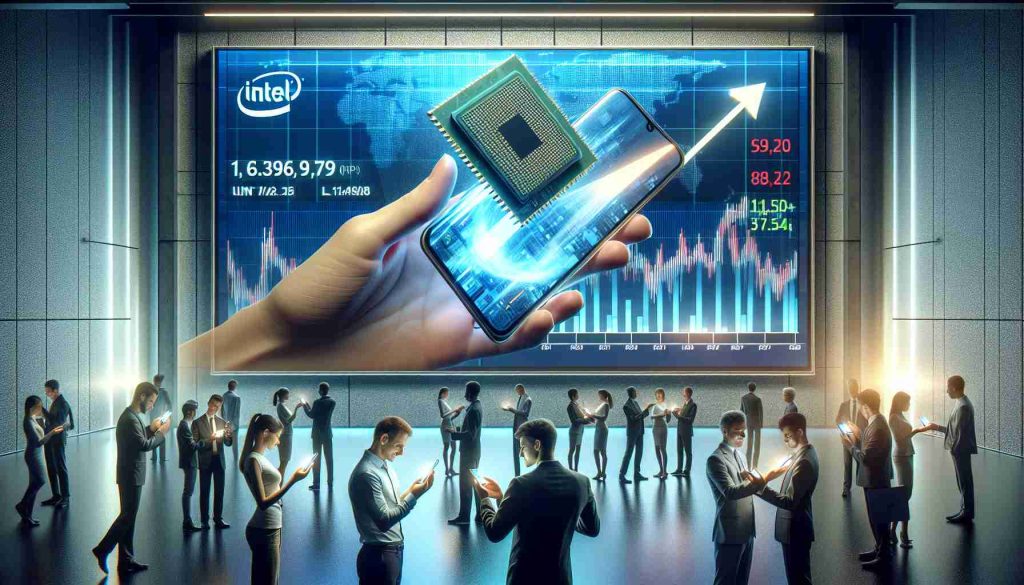In a surprising update, PhillipCapital has adjusted its stance on Nvidia Corporation, shifting from a “Buy” recommendation to an “Accumulate.” Despite recent price fluctuations, the financial firm reiterated confidence in Nvidia’s growth by raising the target price from $155 to $160. Notably, Nvidia’s stock recently traded at $141.92.
The AI Race and Nvidia’s Strategic Positioning
Market dynamics are swiftly transforming as hyperscalers enhance their AI cloud services to attract emerging AI startups. PhillipCapital analyst Yik Ban Chong emphasized the increased sales of Nvidia’s H200 Hopper processors, marking the quickest product adoption in the company’s annals. As Nvidia looks to its Blackwell processors, slated to launch in Q4 2025, it anticipates revenues exceeding previous projections by several billion dollars.
Chong elaborated that while Nvidia anticipates reaching a balance between supply and demand by FY26, growth might decelerate post-mid-fiscal 2026 as earnings could plateau. Nevertheless, Nvidia continues to lead the AI GPU sector, with its latest Blackwell processor boasting more than twice the capabilities of its predecessor, Hopper.
Geopolitical Tensions Pose Risks
PhillipCapital highlighted potential risks linked to the ongoing US-China trade tensions. Given the historical impact of trade disputes on Nvidia’s share price—once falling over 50%—there’s caution about future tariff implications. China, accounting for 24% of Nvidia’s sales in 2019, now represents about 13%.
With PhillipCapital’s “Accumulate” recommendation, Nvidia is positioned to deliver moderate returns between 5% to 20%.
Nvidia’s AI Dominance: Prospects and Challenges in a Rapidly Changing Landscape
Nvidia Corporation has long been a powerhouse in the semiconductor industry, with its hardware being pivotal for AI advancements. However, the recent market analysis by PhillipCapital shines a light on various factors that could significantly impact Nvidia’s future and, consequently, the technological landscape at large. Let’s delve deeper into the unspoken aspects of Nvidia’s journey and the broader implications for communities, industries, and global markets.
Driving Technological Innovation
One key factor propelling Nvidia’s continued relevance in the tech world is its pioneering work in AI technology. The rapid adoption of its H200 Hopper processors exemplifies Nvidia’s critical role in powering AI solutions. These processors are increasingly becoming the backbone of AI applications, from autonomous vehicles to healthcare diagnostics and virtual reality environments.
The introduction of Nvidia’s Blackwell processors, anticipated to launch in late 2025, is poised to surpass the capabilities of its Hopper predecessors significantly. This leap in processing power could unlock new potentials for businesses, enhance consumer experiences, and fuel advancements in research and technology. For communities and countries investing heavily in AI infrastructure, this advancement could translate into significant economic growth and job creation.
Impact on the Global Workforce
Nvidia’s innovations are not just catalyzing AI advancements but also reshaping job markets. As AI becomes more integrated across various sectors, there is an increasing demand for skilled workers capable of harnessing these technologies. On the one hand, this represents an opportunity for jobs in developing new AI-driven applications. On the other hand, it poses a challenge for industries reliant on workforces at risk of automation.
Nvidia’s success is also intertwined with the tech community’s growth, as startups and developers rely on its GPUs for building new AI ventures. The level of support and training offered by Nvidia to these communities can influence the speed and breadth of AI technology adoption worldwide.
Environmental and Ethical Considerations
As the world races to develop more powerful AI systems, the environmental impact of high-performance computing comes under scrutiny. Nvidia’s latest processors, while advancing technological capabilities, also raise concerns about energy consumption. The push for more energy-efficient technologies is vital to ensure that AI advancements are sustainable in the long run.
Additionally, the ethical implications of AI-driven technologies are a growing concern. Nvidia, being at the forefront of this revolution, holds a responsibility to guide ethical AI development practices, ensuring technology serves humanity positively.
Advantages and Disadvantages of Nvidia’s Market Position
Advantages:
– Technological Leadership: Nvidia remains a leader in AI processing power, essential for cutting-edge applications.
– Market Demand: Robust demand for AI solutions positions Nvidia favorably for continued revenue growth.
– Innovation Culture: Continuous product development, such as the Blackwell processors, sustains Nvidia’s competitive edge.
Disadvantages:
– Market Saturation: As the market matures, growth could decelerate by mid-fiscal 2026, impacting long-term earnings.
– Geopolitical Risks: Ongoing US-China trade tensions pose significant risks to Nvidia’s global sales.
– Environmental Impact: The need for energy-efficient products becomes imperative as computing demands grow.
What Questions Arise?
One pertinent question is how Nvidia plans to navigate the geopolitical landscape while maintaining its market leadership. How will it address the ethical and environmental concerns associated with its technologies?
While the challenges are formidable, Nvidia’s strategic positioning in the AI sector offers immense opportunities. The company’s ability to balance innovation with responsibility will determine not only its future success but also the trajectory of AI development globally.
For more information on Nvidia and the technology industry, you can visit the official Nvidia website or explore insights from mainstream financial and tech news outlets.





















